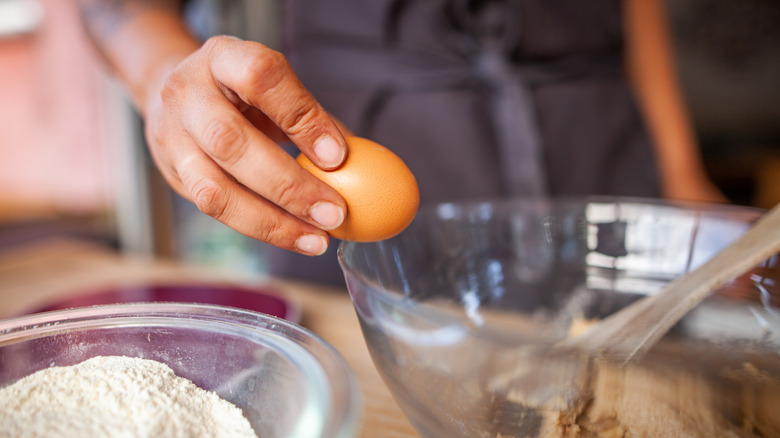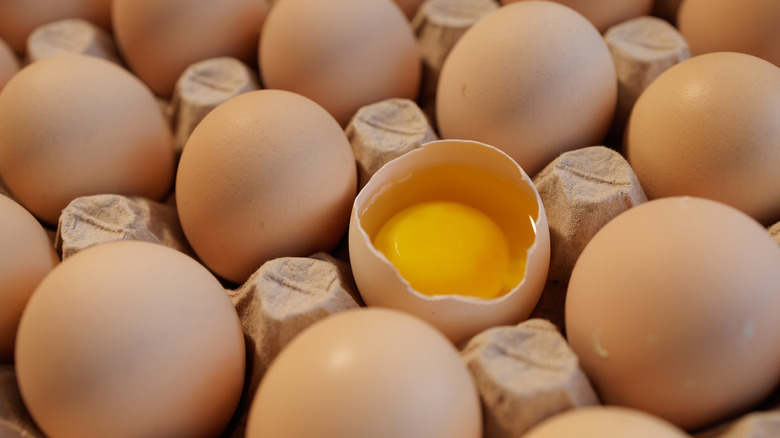The Egg Cracking Mistake That Can Completely Ruin Your Recipe
Eggs are a staple in dishes all over the world, thanks to their rich flavor, binding properties, and significant health benefits. If you're regularly cooking or baking, getting through a carton of eggs doesn't take long (though it might be hard to find them in the first place), which inevitably means a lot of egg cracking. Of course, how you crack an egg definitely matters, but where you crack it is just as important. If you're adding your egg to other ingredients, it's best to crack it into a separate bowl first.
On the off chance that there's something wrong with your egg, this method helps you avoid ruining the entire recipe — and nobody likes waste. It's also much easier to fetch out any eggshell fragments this way, which can often end up mixed in with the egg when you crack it. Yes, this method requires one extra bowl to clean, but it's a great way to avoid a kitchen mishap.
Other egg cracking mistakes to avoid
Cracking your egg into a separate bowl is a great way to save your recipe from disaster, but there are a few other egg-cooking mistakes to steer clear of. One of these is using an egg that is already damaged — this can potentially lead to bacteria entering the egg and contaminating your food. So, for your own safety, bin any mysteriously cracked eggs. You might also be tempted to wash your egg before cracking it, though this can lead to more problems.
According to USDA guidelines, eggs are actually required to be washed before being sold — and washing them again at home only increases the risk of bacteria spreading. Safety aside, there's also a chance of accidentally breaking your eggs in the process. When cracking your egg, avoid doing so on the rim of a bowl. It's actually much better to crack eggs on a flat surface, in one firm tap. This way, the shell won't break into fragments that end up in your dish. If you're using two eggs, you can even crack them against each other gently. So, remember these tips next time you're breaking an egg, and thank us later.

